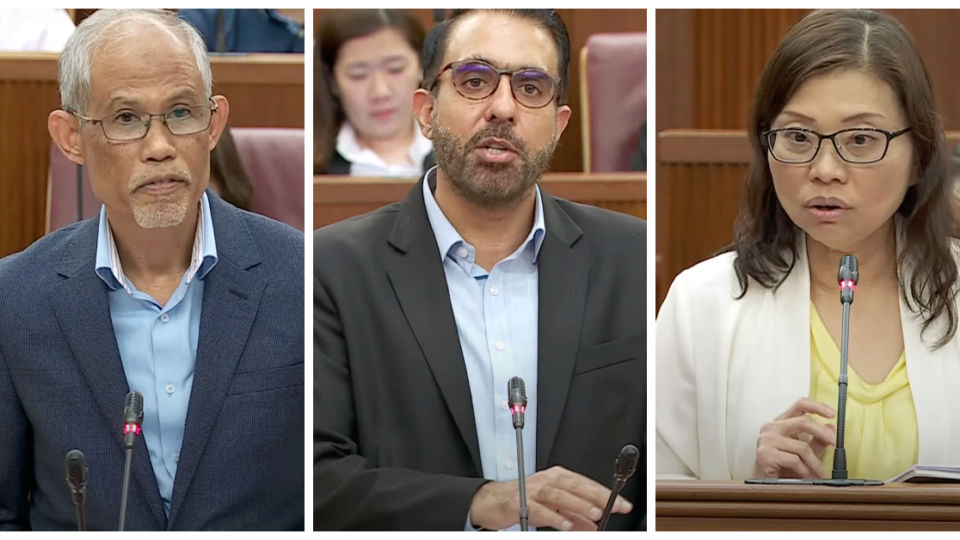The debate over the bill repealing Section 377A of the Penal Code and another bill to amend Singapore’s constitution to protect the definition of marriage from legal challenges wrapped up today with the remaining speakers having their say.
Today’s session also saw politicians answer or clarify questions from the other members of Parliament. Needless to say, jabs were made and words were misconstrued. Here are some of the key takeaways.
Let’s talk about cancel culture (again)
Once again, the specter of cancel culture was raised in regard to the rights of people who do not agree about the repeal of 377A and who believe in the traditional notion of marriage to express their opinions.
Regarding the government’s plan is to tackle cancel culture, Home Affairs and Law Minister K Shanmugam said, “Many religious groups and organizations in particular are very concerned about this. Many Church groups have spoken with us. Their experience is that when they express their views they are shouted down and they feel bullied.”
Although he added that people should be free to stand by their beliefs and express their views with due respect for the feelings of others without the fear of being ‘cancelled’, it is interesting to note that most of these sentiments were out of concern for a community that 377A does not affect.
Digs at the Opposition party
Some of the spiciest parts of today’s hearing were the zingers between members of the PAP and the opposition.
Shanmugam spoke out against the leader of the opposition, Pritam Singh (WP-Aljunied), saying that the Workers’ Party showed yesterday that it does not support or oppose the repeal of Section 377A or the constitutional amendments and has “no official position.”
“They debated and discussed but didn’t decide on a party position. So the question is if this is how one decides, how will such a team function if they are in charge?” he asked.
“Mr. Singh said his lifting of the whip on Workers’ Party MPs was democratic so as to allow for a full and honest representation of all views. That explanation is factually untrue. Every MP must know that. It does no credit to this house to say these things.”
He stated that MPs are allowed to express their honest views without having to lift the whip.
Singh retaliated by saying Shanmugam “mischaracterised his speech somewhat”. He brought up examples of when the PAP lifted the whip so individual MPs could vote based on their religious and ethical beliefs, as in the case of the Human Organ Transplant Bill of 2009 and the Abortion Bill of 1969.
Hazel Poa of the Progress Singapore Party (PSP) and Masagos also had a small exchange in which Masagos urged PSP to state their position on the bills.
Poa elaborated and said that PSP would support the constitutional amendment on one condition – if the public were given a referendum to decide for themselves the definition of marriage.
To that, Masagos made a comment about waiting for the “train to crash” on them. Interesting.
Hence, PSP’s final stance is that they will support the repeal of Section 377A but will not support the constitutional amendment.
It’s official
It’s no surprise that after votes were taken, Parliament approved the legislation to decriminalize gay sex between men and to protect the definition of marriage from legal challenges.
While it seems like a win, this decision is also a step back for the LGBT community as amending the constitution means limiting the prospect of legalizing same-sex marriage anytime soon. It is also interesting to note that none of the MPs who opposed the constitutional amendment did so on the basis that same-sex marriage is a fundamental right, instead arguing that it gave parliament too much power over the judiciary.
While it looks like the prospect of same-sex marriage being recognized in Singapore still seems far off, other Asian countries have proved more progressive. Taiwan became the first country in Asia to legalize same-sex marriage in 2019, while same-sex partners of residents can receive spousal visas and spousal benefits in Hong Kong.
RELATED:




